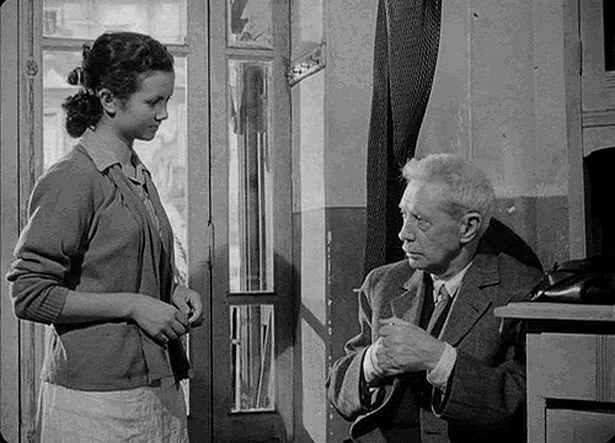In one of the greatest accomplishments of the Neorealist film movement, Vittorio De Sica dedicates this film to his father and effectively captures the grim life of the elderly in post-war Italy.

The film paints a vividly emotional picture of Umberto D. (Carlo Battisti non-proessional actor – a university professor from Florence), an older man in Rome who struggles to pay his landlady debts. His privacy and pride are constantly abused by people who simply don’t care; the ruthless landlady (Lina Gennari) tries to evict him by renovating his room during his absence, former work colleagues politely listen to his problem but then elegantly disappear.
His only support comes from two sources: the housemaid, Maria played beautifully by Maria-Pia Casilio, who tries to help as much as she can considering her precarious situation – upcoming pregnancy from unknown father and unclear job prospects once the landlady finds out.

And then there is Umberto’s dog Flike that functions as the ultimate bastion of support and loyalty throughout his owner’s ordeal. The use of the dog is indeed the director’s radical condemnation to further emphasize the crush of all social systems, the lack of human solidarity and communication where only a dog can provide that unconditional compassion.
Beyond the grim ambience, I found a few whimsical moments that provides interesting time-parallels. Maria, the teenaged housemaid, invents her own SMS service to communicate with her soldier friends. To fill in for the probable cellphone ringtone, we hear the trumpet sound several times throughout the film, that drives Maria running to the window in Umberto’s room, where outside in the piazza, her soldier friends clumsily signal her, while reporting to their unit.
What I took from the film is simple; in our daily quest to conquer the world, human communication and solidarity should take a front seat.

